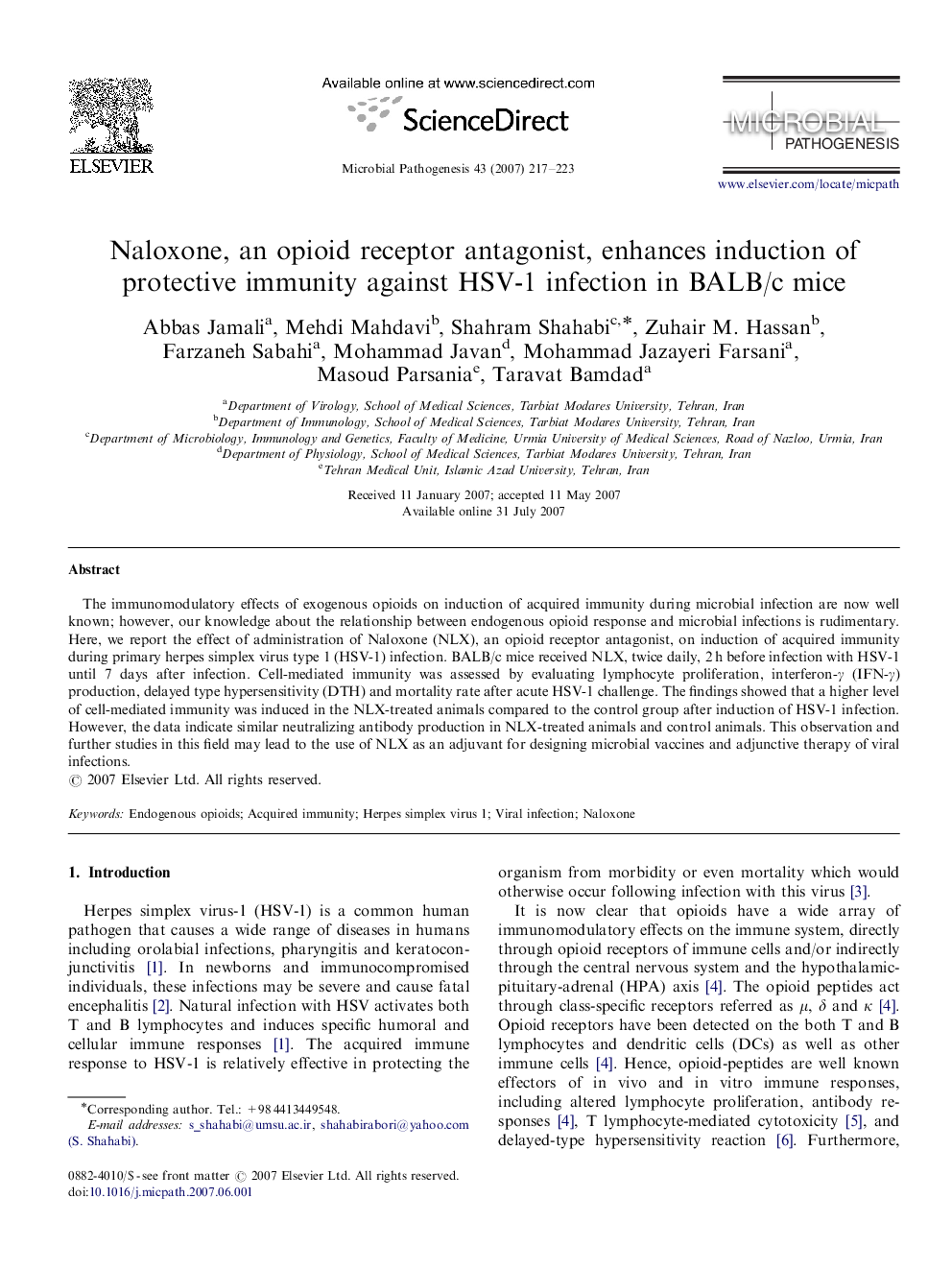| Article ID | Journal | Published Year | Pages | File Type |
|---|---|---|---|---|
| 3417259 | Microbial Pathogenesis | 2007 | 7 Pages |
Abstract
The immunomodulatory effects of exogenous opioids on induction of acquired immunity during microbial infection are now well known; however, our knowledge about the relationship between endogenous opioid response and microbial infections is rudimentary. Here, we report the effect of administration of Naloxone (NLX), an opioid receptor antagonist, on induction of acquired immunity during primary herpes simplex virus type 1 (HSV-1) infection. BALB/c mice received NLX, twice daily, 2 h before infection with HSV-1 until 7 days after infection. Cell-mediated immunity was assessed by evaluating lymphocyte proliferation, interferon-γ (IFN-γ) production, delayed type hypersensitivity (DTH) and mortality rate after acute HSV-1 challenge. The findings showed that a higher level of cell-mediated immunity was induced in the NLX-treated animals compared to the control group after induction of HSV-1 infection. However, the data indicate similar neutralizing antibody production in NLX-treated animals and control animals. This observation and further studies in this field may lead to the use of NLX as an adjuvant for designing microbial vaccines and adjunctive therapy of viral infections.
Related Topics
Life Sciences
Immunology and Microbiology
Microbiology
Authors
Abbas Jamali, Mehdi Mahdavi, Shahram Shahabi, Zuhair M. Hassan, Farzaneh Sabahi, Mohammad Javan, Mohammad Jazayeri Farsani, Masoud Parsania, Taravat Bamdad,
